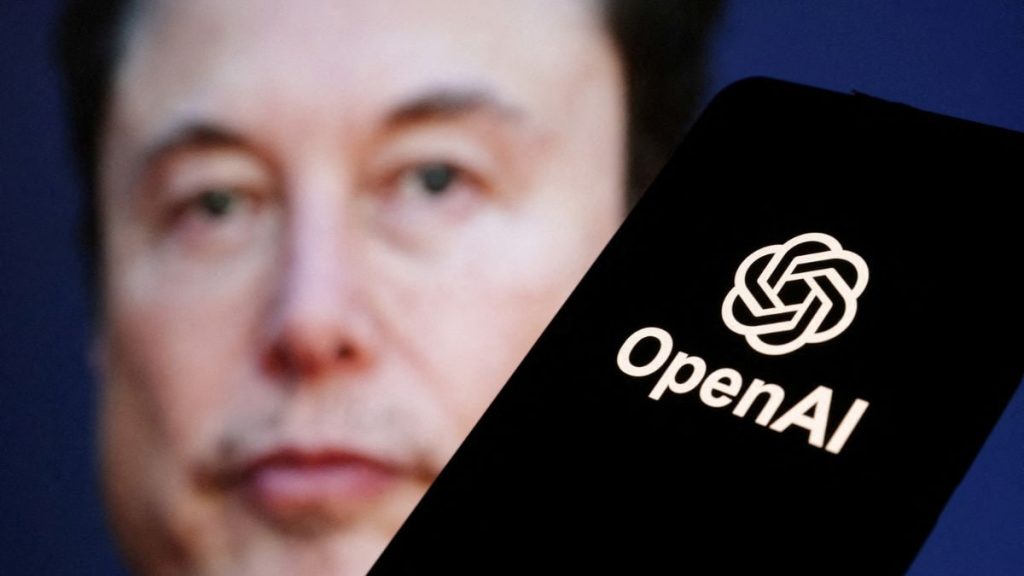Tech billionaire Elon Musk’s artificial intelligence firm, xAI, has sued Apple and OpenAI.
The lawsuit claims that Apple and OpenAI have “locked up markets to maintain their monopolies and prevent innovators like X and xAI from competing”.
Musk’s firm said it is seeking billions of dollars in damages.
ALSO READ |
Why Elon Musk has been awarded Tesla shares worth $29 billion
The billionaire entrepreneur had been threatening legal action against Apple for the past few weeks.
But why has Musk’s firm sued Apple and OpenAI? Have the companies responded yet?
Let’s find out:
Why Elon Musk’s xAI has sued Apple, OpenAI
Musk has filed an antitrust lawsuit against Apple and OpenAI, alleging that the iPhone maker and the ChatGPT maker are working together to block competition in artificial intelligence.
The 61-page lawsuit comes after Musk’s warning two weeks ago, in which he accused Apple of unfairly favouring OpenAI and ChatGPT in the App Store rankings for top AI apps.
As part of its partnership with OpenAI, Apple has integrated ChatGPT into iPhones, iPads, and MacBooks.
At the time, Musk suggested that Apple had manipulated the system against ChatGPT competitors such as Grok, his firm xAI’s chatbot.
Now, the SpaceX owner has listed a series of grievances in the lawsuit, seeking monetary damages and a court order to restrict the alleged illegal practices.
“If not for its exclusive deal with OpenAI, Apple would have no reason to refrain from more prominently featuring the X app and the Grok app in its App Store,” the lawsuit said, according to Reuters.
By arguing that the Apple-OpenAI agreement has “locked up markets”, Musk is challenging one of Apple’s biggest moves into AI and a landmark deal for OpenAI.
“Defendants entered an unlawful agreement and conspiracy to leverage Apple’s monopoly power in the US smartphone market to maintain OpenAI’s monopoly power in generative AI chatbots,” the lawsuit claims.
It also seeks to “recover billions in damages”.
How did the two companies react?
OpenAI has denied Musk’s allegations and described the lawsuit as part of his broader attacks on the company.
In a statement, a company spokesperson said, “This latest filing is consistent with Mr Musk’s ongoing pattern of harassment.”
Musk is also separately suing OpenAI and its CEO, Sam Altman, to stop the company’s shift from a non-profit to a for-profit business.
Notably, Musk co-founded OpenAI with Altman in 2015 as a non-profit, but later fell out with him and launched his own rival AI firm.
Meanwhile, Apple has not yet responded to the lawsuit.
In a social media post on Monday, Musk said, “A million reviews with 4.9 average for @Grok and still Apple refuses to mention Grok on any lists”.
A million reviews with 4.9 average for @Grok and still Apple refuses to mention Grok on any lists https://t.co/9GovpyMiZH
— Elon Musk (@elonmusk) August 25, 2025
Apple, OpenAI and xAI
The lawsuit centres on Apple’s decision to use ChatGPT as an AI-driven “answer engine” on the iPhone when its in-built system could not meet user demands.
The tie-up announced last year marked Apple’s late move into the AI race, which it had planned to run mainly on its own technology. Yet, the company has not managed to deliver fully on those plans.
Apple’s limitations in AI appear to be pushing more iPhone users towards ChatGPT. This gives OpenAI access to valuable data that rivals like Grok cannot reach, as the deal remains exclusive.
ChatGPT quickly rose in popularity after its release in late 2022, becoming the fastest-growing consumer app ever.
In March, Musk’s xAI purchased X for $33 billion to strengthen its chatbot training. He has also added the Grok chatbot to Tesla cars.
xAI, which began less than two years ago, now competes with OpenAI, backed by Microsoft and with the Chinese firm DeepSeek.
What’s next?
Antitrust experts who are not part of the case told Reuters that Apple’s strong position in the smartphone market could support xAI’s claim that the company is unlawfully linking iPhone sales with OpenAI’s ChatGPT.
However, they said Apple may argue that its deal with OpenAI was simply a business choice in a competitive market, and that it is under no duty to help competitors expand.
Apple could also say that security or practical reasons make it necessary to build AI directly into its operating system, Herbert Hovenkamp, a law professor at the University of Pennsylvania, told the news agency.
The case could give United States courts their first chance to decide whether AI is a distinct market and what it covers, a key point in antitrust cases.
With inputs from agencies

